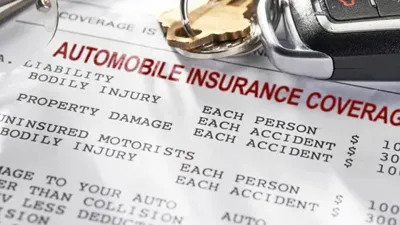Purchasing a used car in the United States offers a great opportunity to save money, but one area where buyers often overlook saving potential is car insurance. While the focus is typically on the car's price, the type of insurance you choose can significantly impact the overall cost of ownership. In this article, we will explore how to choose car insurance for your used car, compare it with insurance for new cars, and provide tips on how to save money while ensuring proper coverage.
![]()
Differences Between Used Car Insurance and New Car Insurance
The main difference between insuring a used car versus a new car lies in the cost and the level of coverage required. For new cars, drivers often opt for full coverage, which includes comprehensive and collision insurance, as well as liability insurance. This ensures that any damage to the vehicle, whether due to an accident or theft, is covered.
On the other hand, used car insurance is typically less expensive because the car’s value is lower. While you may still need liability insurance, you might choose to forgo comprehensive or collision coverage if your car is older or has a lower market value. The main goal is to find a balance between protecting your investment and keeping insurance costs manageable.
Is used car insurance less expensive than new cars?
Yes, the cost of used car insurance may be less expensive than insurance on new cars.
But this is not a general or main rule in used car insurance. If the used car is one of a special and luxury model, the insurance on it may be much higher than any new car in a different model.
![]()
How to Choose Specific Coverage for a Used Car
When selecting insurance for a used car, it's important to assess the car's value, age, and condition to determine the type of coverage you need. Here are some key options to consider:
- Liability Insurance: This is the most basic coverage and is required by law in most states. It covers damages you cause to others in an accident.
- Collision Insurance: This covers the cost of repairs to your car if you are at fault in an accident. If your used car is not worth much, this coverage may not be necessary.
- Comprehensive Insurance: Covers damage to your car not caused by an accident, such as theft, vandalism, or natural disasters. For older cars, you may want to skip this if the premium exceeds the car's value.
- Uninsured/Underinsured Motorist Coverage: This is essential if you want protection in case the person responsible for an accident doesn't have sufficient insurance.
Insurance Companies for Used Car Coverage and Sample Quotes
Several insurance companies in the U.S. offer competitive rates for used car coverage. Some of the top insurance providers include:
- Geico: Known for offering affordable rates for both new and used cars, with quotes for used cars averaging around $100 per month.
- State Farm: Provides a variety of coverage options with competitive pricing for used vehicles. Quotes typically range from $120 to $150 per month depending on the car's value and location.
- Progressive: Offers customizable plans and discounts for bundling policies, with quotes for used cars averaging $110 per month.
- Allstate: Known for a wide range of discounts, such as for safe driving or bundling, with monthly quotes for used cars averaging between $120 and $140.
The actual cost of insurance will depend on various factors such as your driving history, the car's make and model, and your location.
Money-Saving Tips When Purchasing Used Car Insurance
To save money on your used car insurance, consider these strategies:
- Opt for Higher Deductibles: Increasing your deductible can lower your premium, but make sure you can afford the deductible in case of an accident.
- Bundle Policies: Many insurers offer discounts if you bundle your car insurance with other policies, such as homeowners or renters insurance.
- Take Advantage of Discounts: Look for discounts like safe driving, anti-theft devices, or low-mileage discounts.
- Maintain a Clean Driving Record: A good driving history can lead to lower rates, so be cautious and avoid accidents or violations.
- Shop Around: It’s important to compare quotes from different insurance providers to ensure you're getting the best deal.
Conclusion
Choosing the right insurance for a used car is all about balancing cost and coverage. By understanding the differences between new and used car insurance, evaluating the specific coverage needs of your vehicle, and shopping around for competitive quotes, you can save money without compromising on protection. With the right approach, you can drive with peace of mind knowing that you have a policy that suits both your budget and your needs.


